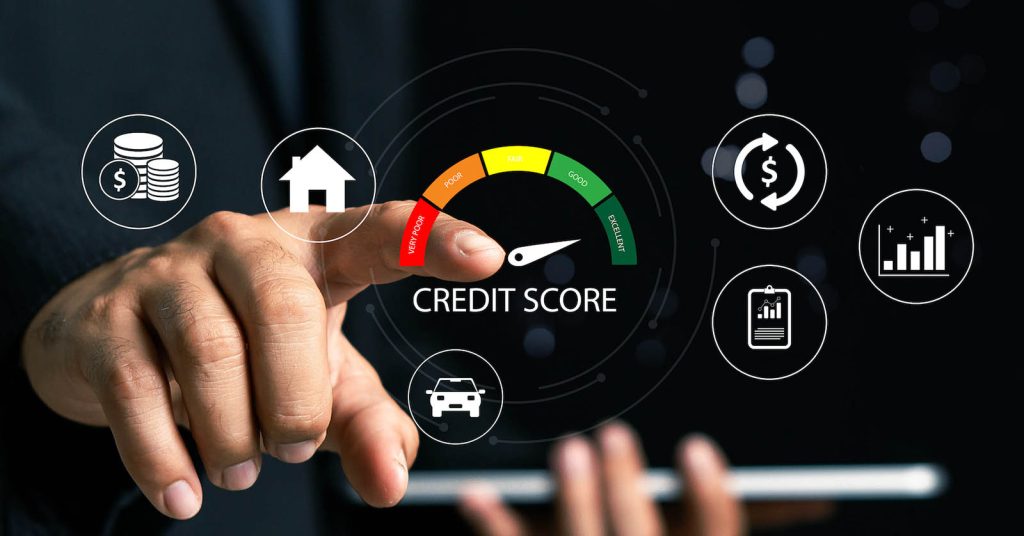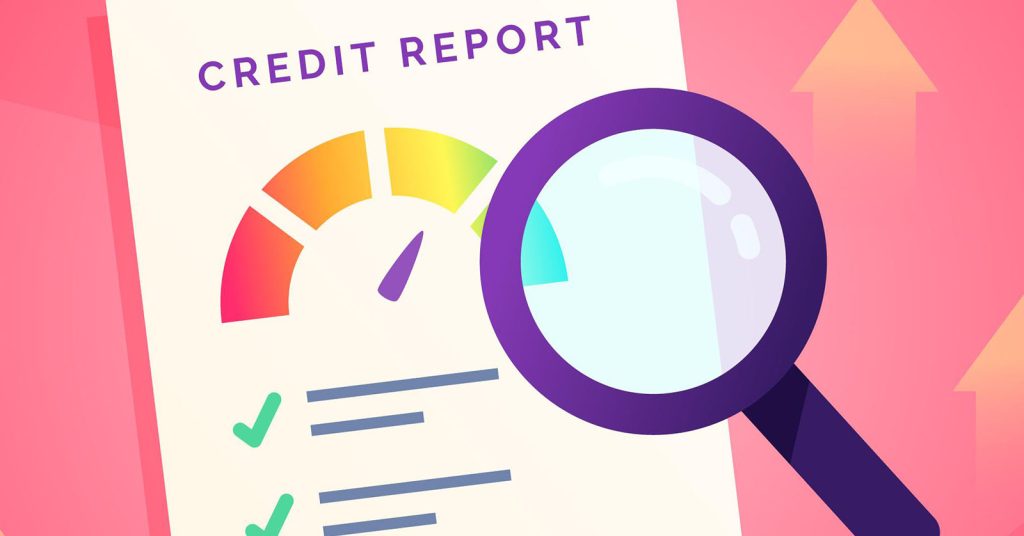Every time someone checks your credit, a record called an inquiry appears on your credit report. Some of these checks are “soft” and don’t affect your credit score, while others are “hard” and can temporarily lower it a bit. The distinction matters because lenders, landlords, and insurers routinely access your report, and only certain purposes should cost you points. In mainstream scoring models, hard inquiries are a relatively small factor compared with payment history and utilization, but their timing and clustering can still influence approvals at the margins. Federal law limits when a company can pull your report, and both FICO® and VantageScore® explain how “rate-shopping” inquiries are grouped so you can compare mortgage or auto offers without taking multiple separate hits. Once you know when a pull will be soft, when it will be hard, and how long it matters, you can plan applications with minimal scoring friction.
Key Takeaways
- Soft inquiries — checking your own credit, many preapprovals, some background checks — do not affect credit scores and are typically hidden from lenders.
- Hard inquiries — applications for credit cards, auto loans, mortgages, and personal loans — can cause a small, temporary score dip and are visible to lenders.
- How long they last: hard inquiries generally remain on credit reports for up to two years; most FICO® scores only factor them in for about the first 12 months.
- Rate-shopping is protected: FICO groups many mortgage/auto/student-loan inquiries made within a short window; VantageScore combines similar pulls within a 14-day period.
- Permissible purpose matters: the Fair Credit Reporting Act (FCRA) limits when a company can pull your report; you can challenge inquiries that lack a valid purpose.
Hard vs. Soft Inquiries: Definitions, Visibility, and When Each Happens
A soft inquiry occurs when your credit is checked for a purpose other than deciding whether to grant new credit. Examples include viewing your own report, monitoring apps updating your score, and many preapproval screens where a lender prescreens you using a list from a credit bureau. Soft inquiries do not affect your scores because they don’t signal that you are taking on new debt, and they are typically not shown to lenders who review your file for a new application.
A hard inquiry is created when you actively apply for new credit — such as a credit card, auto loan, mortgage, or personal line — and a lender pulls your report to make a lending decision. Hard pulls are visible to other lenders precisely because they indicate potential new borrowing, and scoring models treat a cluster of new applications within a short time as a modest risk signal.
The CFPB defines a credit inquiry as a request to access your report for an eligibility decision, and the FCRA requires a “permissible purpose” for any pull. Employers, landlords, insurers, and utilities may also review credit reports, but many of those checks are coded so they do not count as hard inquiries that affect scores. If a business cannot explain why it had a permissible purpose or you never applied for credit with them, you can dispute the inquiry as improper with the bureaus and the company that pulled it.
How Much Hard Inquiries Matter — and for How Long
Hard inquiries are a minor factor compared with payment history or utilization, but they can still nudge your score, especially if several appear within a short span outside a protected shopping window. FICO notes that a hard pull may cause a small, temporary drop in your score, and that effect usually fades as months pass without additional new-credit activity. Experian and Equifax explain that hard inquiries typically remain on your credit reports for up to two years, but most FICO scores only consider them for about 12 months.
Because scoring models weigh recency, the first few months after a cluster of hard pulls are when the effect is most noticeable; by around 9–12 months, many consumers recover most or all of those points if everything else (on-time payments, low utilization) stays clean. Inquiries also do not create fees or interest — unlike balances — so the strategy is not to fear them, but to time them. A single well-timed application for a new card, for example, may cause a modest, short-lived dip while the added credit limit can help utilization and overall flexibility.
Lenders also look at context. One mortgage inquiry before buying a home looks very different from multiple retail card applications in a weekend. If you know you have a major loan coming — like a mortgage or auto loan — keeping the 12-month scoring window in mind helps you cluster applications early and avoid extra pulls right before underwriting.
Rate-Shopping Windows: Mortgages, Auto Loans, and Student Loans
Both major scoring families include logic to let you shop for a single loan without being penalized as if you were seeking many. FICO describes two layers of protection: for certain loan types (mortgage, auto, student loans), many scoring versions ignore recent inquiries that are less than 30 days old at the time your score is calculated, and they may then deduplicate multiple inquiries within roughly a 45-day “shopping window” so they count as a single event for scoring. VantageScore takes a simpler approach, treating multiple inquiries for the same type of loan within a 14-day rolling period as one inquiry.
The CFPB’s consumer guidance echoes this with mortgage examples: within a defined shopping window, multiple lender checks are recorded on your report but treated as a single inquiry for scoring. TransUnion offers similar guidance, summarizing roughly 45 days as a reasonable FICO shopping window and 14 days for VantageScore. The practical result is that you can collect several official quotes for the same type of loan with limited scoring impact if you cluster them.
Two important nuances: first, these protections generally apply to mortgage, auto, and student-loan inquiries — not to credit-card applications. Second, while each inquiry will still appear on your report, grouped “shopping” pulls are treated as one event in the score. That is why it is smart to pick a focused week or two to get quotes, submit those applications within that window, and avoid spreading them out over many weeks.
Controlling the Impact: What to Do Before, During, and After You Apply
You can’t avoid all hard inquiries — and you don’t need to — but you can control their impact.
- Check your own credit first. Pulling your own reports and scores is a soft inquiry and won’t affect your score. Use this to catch errors before lenders see them.
- Batch applications for major loans. If you are shopping for a car loan or mortgage, aim to submit all applications within a tight 14-day period to fit VantageScore’s window and land comfortably within FICO’s 30-day “ignore” period, with the broader ~45-day dedupe as a backstop.
- Avoid unrelated pulls near big decisions. Try not to apply for store cards or extra credit lines just before a mortgage or major auto loan.
- Use soft-pull prequalification where available. Many issuers let you see your odds or potential terms with only a soft pull; the hard inquiry happens only if you accept and formally apply.
- Understand permissible purpose. If you see a hard inquiry from a company you never applied to, dispute it with the bureaus and the company as a potential impermissible pull under the FCRA.
- Keep utilization low while applying. Models read “new inquiries + rising balances” as more concerning than inquiries alone. Paying down cards before applying helps.
- Set up good habits on new accounts. After approval, turn on autopay, set alerts, and keep utilization modest. Positive data on the new account helps any small inquiry impact fade faster.
- Ask about reusing a recent pull. If you’re denied, some lenders can reconsider using the same hard inquiry instead of doing another one.
Common Myths About Inquiries (and the Facts)
- “Checking my own score hurts my credit.” Self-checks are soft inquiries and don’t affect your scores.
- “Every inquiry is treated the same.” Mortgage, auto, and student-loan inquiries inside recognized shopping windows are grouped; credit-card inquiries are generally counted individually.
- “Hard inquiries wreck my credit for two years.” They can stay on your reports for up to two years, but most FICO scores only factor them in for about 12 months, and the effect fades over time.
- “Preapprovals always cause a hard pull.” Most preapprovals use a soft pull until you formally apply, but always read the fine print.
- “A balance-transfer card doesn’t cause a hard inquiry.” Opening a new balance-transfer card usually requires a new application and hard pull.
- “Employment background checks hurt my score.” Employment-related credit checks are typically coded as soft inquiries and don’t affect scores.
- “Lenders can pull my credit for any reason.” The FCRA requires a permissible purpose; inquiries without a valid purpose can be disputed.
- “I should avoid rate-shopping because multiple checks will crush my score.” Rate-shopping windows exist to let you compare offers with minimal scoring cost.
- “Soft inquiries are invisible to me.” They appear in the soft-inquiry section of your report — you can see them, but lenders usually cannot.
- “There’s a fixed number of inquiries that guarantees a denial.” Lenders weigh inquiries alongside income, debt-to-income ratio, utilization, history, and other factors; there is no universal “auto-decline” number.
| Inquiry Type | Examples | Visible to Lenders? | Affects Score? | Typical Duration on Report |
|---|---|---|---|---|
| Soft | Self-check, credit monitoring, many preapprovals, some tenant/utility checks | Usually no | No | May appear in a “soft” section; not used in scores |
| Hard | Credit card, auto, mortgage, personal loan applications | Yes | Small, temporary dip | Up to two years; typically scored for about one year |
| Rate-shopping (grouped) | Multiple auto/mortgage/student-loan pulls in a short window | Yes | Scored as a single event (window rules apply) | Each entry displays separately but is treated as one for scoring |
Durations and grouping reflect FICO, VantageScore, and bureau guidance; exact handling depends on model version and lender systems.
Frequently Asked Questions (FAQs)
Do soft inquiries ever affect my score?
No. Viewing your own credit, many preapprovals, and similar checks are coded as soft inquiries, do not affect scores, and are typically hidden from lenders.
How long do hard inquiries matter?
Hard inquiries generally stay on your credit reports for up to two years, but most FICO scores only factor them in for about 12 months. Their impact fades with time if you avoid new, unnecessary applications.
Can I shop mortgage or auto rates without multiple hits?
Yes. FICO typically ignores certain recent inquiries for mortgage, auto, and student loans and groups others within roughly a 45-day window; VantageScore groups similar inquiries within 14 days. Bunch your applications and you’ll usually be treated as if you shopped once.
What if I see a hard inquiry I didn’t authorize?
Dispute it with the credit bureaus and the company that pulled it. The FCRA requires a permissible purpose, and inquiries without valid authorization can be corrected or removed.
Do employment or insurance checks hurt my score?
No. Employment and many insurance checks are typically coded as soft inquiries and do not affect credit scores.
Should I avoid opening a new credit card just to dodge the inquiry?
A single, well-timed hard inquiry usually has a modest, temporary effect. If the new card’s benefits and added limit support your goals and you manage it well, one inquiry by itself is rarely decisive.
Sources
- CFPB — What is a credit inquiry?
- FICO — Do credit inquiries lower your score?
- FICO — How to rate shop and minimize impact
- VantageScore — 14-day rate-shopping window
- Experian — What is a hard inquiry?
- Experian — Hard vs soft inquiries
- Equifax — Understanding hard inquiries
- CFPB — Mortgage shopping and the 45-day window
- CFPB — FCRA permissible purpose advisory
- Experian — Does checking your own score lower it?
- TransUnion — How rate shopping can impact your credit score















